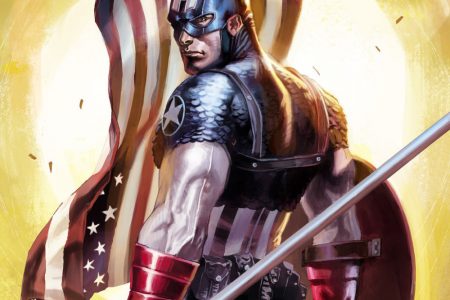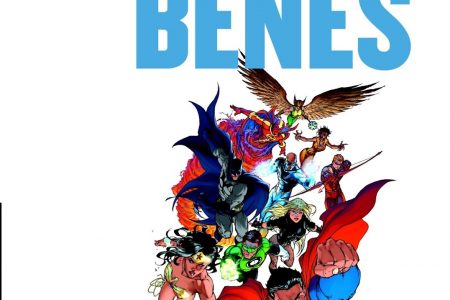Written by Bill Willingham, with illustrations by Steve Leialoha
Fables has been a great comic book since the first issue, so I was looking forward to Willingham’s prose story set in the Fables universe. It concerns characters we haven’t seen in the comic book: Bo Peep and Peter Piper, and Peter’s older brother Max. Willingham sets out the universe of Fables in the first chapter for those readers who haven’t read the comics, but it also provides little extra nuances for those of us who have been there since the beginning. The story concerns the arrival of Max into this world, something that sets Peter on an adventure within this world, while the ‘origin’ story of Peter, Max and Bo is told in flashback in between the current sections.
The story is a wonderful mix of adventure and fairy tale, told with that same balance Willingham has found in the comic book. He has a lovely prose style, which echoes the same feeling as a good fairy tale, so you don’t think about that fact that it’s not in comic book form. The black and white illustrations from Leialoha make up for the lack of normal visuals, and they are utterly charming and perfectly suited in style to the novel (he does ink regular penciller Mark Buckingham, so he has been part of the Fables team for a long time), and they add a lovely touch to the book. He also draws a small comic book story written by Willingham included at the end of the book, in case you were missing the usual Fables experience.
I was utterly gripped by the tale, which mixes the story of Hamelin and the pied piper with extra ‘facts’ about what happened to Peter when he was in Hamelin, and what happened to Bo after she lost her sheep because of the armies of the Adversary. It’s a real page-turner, but it also has the lyrical quality and atmosphere of a fairy tale, especially the ending, and it makes for a great addition to the Fables mythology.
The only minor qualm I had about this nicely packaged hardback book was the number of typesetting areas. Double spaces, extra space at the start of the line, extra indents at the start of paragraphs, missing quotation marks in dialogue – it’s not a big deal, but it occasionally distracted me while reading. It seems a shame that a book that has had such care and attention to its design should be slightly spoiled by this.
But I’m being picky: this is a wonderful story, and I hope that Willingham writes more Fables novels, as long as he keeps providing us with excellent Fables comics as well.




